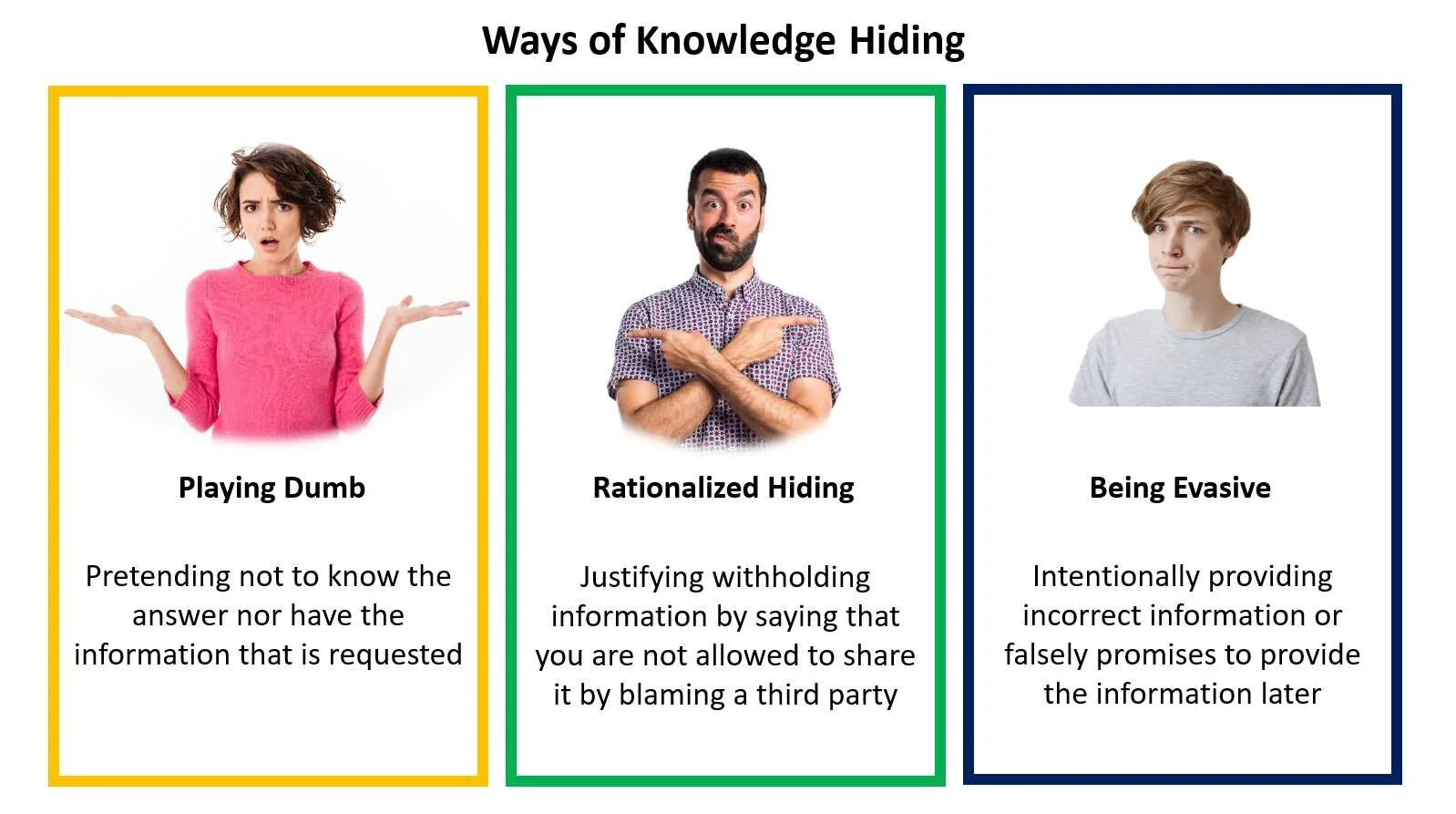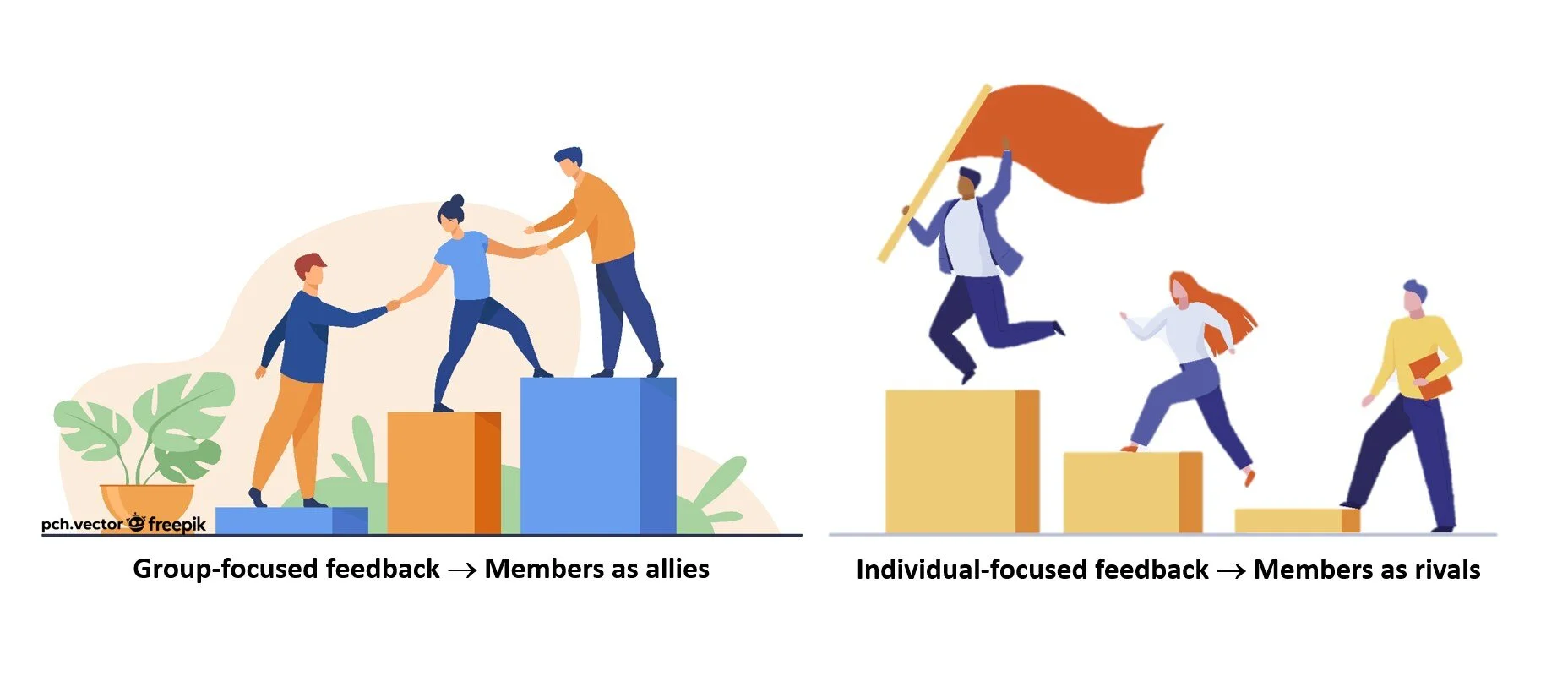Digest 17. Want to reduce knowledge hiding? Try group-focused feedback!
Knowledge is one of the sources of competitive advantage for contemporary businesses, and knowledge sharing among employees can bring about creativity and innovation that largely benefit organizations. Yet, many people may have experienced a hard time getting the information they needed from their colleagues. This is because knowledge sharing might not always happen naturally in organizations, and employees may intentionally withhold or hide important information and know-how from their coworkers.
According to Connelly, Zweig, Webster, & Trougakos (2012), employees can hide knowledge from their colleagues in three main ways:
How can we reduce knowledge hiding?
Organizational culture and climate can play a crucial role in encouraging knowledge sharing among employees. But Zhu, Chen, Wang, Jin, and Wang (2019) have shown that feedback can also be key; notably, group-focused feedback, as opposed to individual-centered feedback, can discourage knowledge hiding.
To explore the effect of feedback on knowledge hiding, Zhu and colleagues (2019) conducted three studies in China. They first surveyed 1,156 part-time MBA students; then conducted an experiment with 210 undergraduate students; finally, they involved 317 plant workers in a manufacturing company. Overall, the results showed that when employees perceive that feedback is focused on individual performance, they might concentrate on personal achievement and regard group members as rivals. This is especially true for individuals who want to prove their competence and compare their competence with others’; in other words, for those with high performance-prove goal orientation. In turn, employees may be reluctant to transfer relevant information, leading to knowledge hiding. On the contrary, when employees perceive that feedback is focused on group performance, they may concentrate on group achievement and develop a sense of “us.” The group members are seen as allies, and this reduces the tendency to hide knowledge from them.
Organizational implications
To reduce knowledge hiding, the following recommendations are provided to managers and team leaders:
Try to have a balance between individual and group-focused feedback.
Use individual-focused feedback if you aim to improve individual performance (see Digest 3 and Digest 4), especially for those employees who are into proving and demonstrating their competence to others. Bear in mind that this would also increase competitive interpersonal behavior.
Do not overemphasize individual performance feedback if you want to encourage knowledge sharing and reduce knowledge hiding in groups. This is especially important for employees highly oriented towards proving themselves.
To prevent knowledge hiding, focus on group feedback, group rewards, and develop a group vision and mission.
Enhance employees’ orientation towards learning and developing, as opposed to proving and showing their competences, by promoting a climate for learning. This can be done by having leaders act as role models of learning orientation and creating a challenging task environment.
Facilitate the creation of a trustful climate among colleagues, as distrust is one of the causes of hiding behaviors (Connelly et al., 2012).
——
Reference: Zhu, Y., Chen, T., Wang, M., Jin, Y., & Wang, Y. (2019). Rivals or allies: How performance-prove goal orientation influences knowledge hiding. Journal of Organizational Behavior, 40(7), 849–868. https://doi.org/10.1002/job.2372


